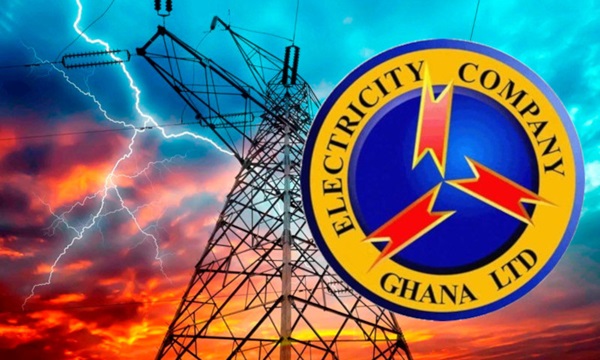The Public Utilities Regulatory Commission (PURC) has issued a firm rebuttal of recent media reports, which it said inaccurately suggested the Commission was solely responsible for the Electricity Company of Ghana’s (ECG) potential bankruptcy status.
The reports also contained personal attacks on PURC’s leadership – particularly its Executive Secretary, which the Commission has condemned as unfounded and misleading.
In a rejoinder, PURC clarified that the issue of ECG’s financial crisis was first raised by ECG itself in a letter dated August 26, 2024 and addressed to the Minister of Finance.
In that letter, PURC said, ECG indicated its precarious financial position; warning that without immediate intervention, the company could face bankruptcy. PURC stated that following this, in its statutory role, it communicated the matter’s seriousness to the Energy Ministry and Presidency on September 16, 2024 – recommending measures to address ECG’s financial woes.
The Commission emphasised that its internal communication to government was based on ECG’s direct appeal for support. According to PURC, the media’s portrayal of the Commission as originator of the bankruptcy claim was inaccurate and failed to acknowledge ECG’s own warnings.
To date, ECG has not provided the detailed financial data requested by PURC to substantiate its claims of imminent bankruptcy, the rejoinder stated. It added, however, that the Commission has advised on strategic interventions aimed at stabilising ECG’s financial position to protect the wider energy sector.
The Commission also responded to claims made by ECG that PURC had “missed the point” in its advice concerning the Cash Waterfall Mechanism (CWM) and fuel purchases.
PURC refuted these claims, saying that its recommendations were made in good faith to preserve the energy sector’s financial integrity. The Commission noted that ECG’s involvement in fuel procurement is outside its core mandate of electricity distribution – and reiterated its position that ECG should focus on addressing inefficiencies in its core business.
PURC also disclosed that ECG has consistently failed to comply with the revised CWM guidelines as directed by the president in 2023, which were designed to ensure fair and transparent revenue allocation across the energy sector.
According to PURC, ECG’s failure to meet collection benchmarks – particularly the 98 percent revenue collection target – has been a significant contributor to the company’s financial troubles. Between January and July 2024, ECG’s collection ratio averaged just 45 percent; well below the required threshold.
In response to ECG’s assertions regarding foreign exchange (forex) losses and delayed payments to Independent Power Producers (IPPs), PURC maintained that forex losses are accounted for in its quarterly reviews. The Commission also criticised ECG’s handling of fuel procurement: noting that in a meeting with the Economic Management Team in November 2023, ECG was instructed not to procure fuel as this task is typically managed by the Volta River Authority (VRA) under Ministry of Finance guidance.
PURC reaffirmed its commitment to balancing the interests of consumers and utility providers while collaborating with stakeholders to ensure the long-term sustainability of Ghana’s energy sector.
The Commission also urged ECG to focus on transparency in its operations, particularly revenue collection and financial reporting, to improve the company’s financial health and safeguard the sector’s stability.
PURC assured that it will continue monitoring and providing necessary regulatory oversight to avert any potential crisis in the energy sector.
B&FT





